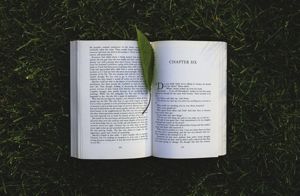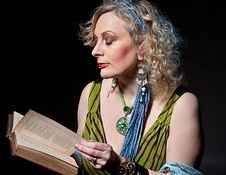September 13 is “fortune cookie” day.
When I read this, it got me thinking about the fortune cookies I’ve enjoyed over the years. The older ones were definitely better. They were more like actual fortunes—“a very attractive person has a message for you”—rather than today’s more inspirational sayings, like “a smile is your passport into the hearts of others.”
I’m not the only one who was disappointed by the change. Kenneth Turan, writing for The Washington Post, stated he used to keep his fortunes when they predicted things like “A very small incident will shortly develop to your advantage.” But then he noticed he was adding fewer to his stash:
“Instead of fortunes, those little cookies…are giving me homilies, savings and allegedly sage advise: ‘Make every minute count.’ ‘Old age makes us wise and more foolish.’ ‘Time heals all wounds.’ If I wanted to have lunch with my mother. I would’ve asked her.”
Restaurant owners noticed it, too: “The sayings are getting much too insipid,” said Aline Berman, owner of the Court of the Mandarins, “too didactic, people want a fortune, not something to tell them how to behave.”
If you’re tired of opening your fortune cookie only to be disappointed because it’s lacking a fortune, how about trying another method? There’s an easy, fast way to do it that’s perfect for writers.
 What is Bibliomancy?
What is Bibliomancy?
The word “bibliomancy” means “fortune telling from books.” You form a question in your mind concerning your future, then you open a book of your choice to a random place (or a place that “feels” right at the moment) and allow your gaze to fall on the first line that attracts you. You then read that line and use your intuition to determine what it may mean for your future.
Sound like a reach? Consider this: the method has been used for over 3,000 years! Traditionally, the Bible was usually the chosen book, though followers of Islam would select the Qur’an, while in Chinese cultures, the I Ching won out.
Sometimes practitioners would use dice, coins, or other tools to help them choose a page at random, though the “close-your-eyes-and-point” method was also favored from early on.
Today one can choose any book for the practice—even Harry Potter—though the history of the method makes it plain that choosing a “wise” book might be the best way to go if you’re looking for answers that may actually help you. If you just want to have a little fun with your book club, using a romance or thriller novel could produce some interesting insights!
 Using Books to Tell a Writer’s Fortune
Using Books to Tell a Writer’s Fortune
According to The Letters of Robert Browning and Elizabeth Barrett, poet Robert Browning used Bibliomancy to ask about his future with Elizabeth Barrett (who later became Elizabeth Barrett Browning).
Browning randomly chose a book at the library, and was initially disappointed when he found the one he’d selected was Cerutti’s Italian Grammar. But then his gaze fell on the following sentence from a translation exercise:
“If we love in the other world as we do in this, I shall love thee to eternity.”
The two lovebirds later eloped and lived their own great love story.
Obviously, the viewer’s point of view is a strong factor in what “future” he or she is likely to come up with, but that doesn’t mean the method is useless. I, for one, have often found relief when something from the outside world helped me gain clarity on a choice I was facing.
Sometimes we go back and forth when trying to make a decision, and other times our true desires remain hidden from our conscious minds until we find a way to jostle them loose. So why not try Bibliomancy to see what you might come up with?
 Practice Fortune Telling for Writers
Practice Fortune Telling for Writers
To give you the idea of the process, I chose questions that writers are likely to ask at one point or another. Keep in mind that for the best results, you should ask open-ended rather than “yes/no” questions. You’ll get more helpful answers.
I used the books that are in my stack of “currently reading,” and employed the “close-your-eyes-and-point” method to find the line. The answers are my interpretations of the lines—yours may be different.
1. What do I need to know that will improve my writing ability?
Book used: Olive Kitteridge by Elizabeth Strout
Line found: “Anita was in the driveway holding the rifle with both her hands, but carefully, sort of, not aiming it at anything.”
My interpretation: I would interpret this line to mean that the writer needs to be more focused in her writing activities. Writing and editing one’s work may seem like the thing to do, but is she using a scattered approach—such as one might infer Anita is employing—or has she determined exactly what she needs to do to reach her goals?
In other words, has she gotten professional feedback on her work? Is she making a conscious effort to build on her strengths and work on her weaknesses, or is she simply writing and hoping it will get better? This line seems to be saying that a more focused effort—working specifically on characterization or plot, for example—may be the best approach.
 2. What should I consider before deciding to self-publish my book?
2. What should I consider before deciding to self-publish my book?
Book used: Bridge of Sighs by Richard Russo
Line found: “You’re next was what he was getting at. You know what happened to the dinosaurs, right? Death. Decomposition.”
My interpretation: Clearly this is a warning! I would see it as encouraging the writer to go ahead and self-publish (from the “you’re next”), but to make sure he covers all his bases to avoid having the book die on the market.
That would include creating a quality book, hiring a designer to create an attractive cover, and planning a number of marketing activities (guest posts, signings, podcast interviews, etc.) to make sure to get the word out about the book. Don’t let all that hard work go to waste!
3. What will happen if I fail to make time for writing this year?
Book used: My Grandmother Asked Me to Tell You She’s Sorry, by Fredrik Backman
Line found: “Do you want to help me pack some of granny’s things into boxes?”
My interpretation: I think this answer is saying that if you don’t make time to write, you might as well put your dreams (or your potential manuscripts) into boxes and kiss them goodbye.
“Packing things in boxes” is usually something that occurs after someone passes away (which is the case at this point in the story), so the line is very appropriate for the question.
Find time to write, or realize you’ll come to the end of your life with your dreams still tucked away in the attic.
 4. What marketing activity will likely produce the best results for my books?
4. What marketing activity will likely produce the best results for my books?
Book used: Educated, by Tara Westove
Line found: “You have an opportunity to help your father,” she said. “He needs you.”
My interpretation: This line is perfect in my opinion, as it points to the key to successful marketing—finding ways to be helpful to others! Far too often, writers focus too much on themselves when trying to sell their books. “Buy my book. Please support me! Won’t you check out my book trailer?”
These sorts of approaches tend to turn readers off. Instead, think about how you can use your expertise to help other people. What did you learn from writing your book? What can you share in guest blog posts, podcast interviews, or in your social media posts that others will find useful? Do that and people will want to check out what you have to say.
Have you tried stichomancy, or Bibliomancy? If so, what did you find for an answer?
Sources
Angus, K. (2016, May 31). How to Tell the Future With Books. Retrieved from https://lithub.com/how-to-tell-the-future-with-books/
Turan, K. (1978, January 30). If You Read This Story About Fortune Cookies. Retrieved from https://www.washingtonpost.com/archive/lifestyle/1978/01/30/if-you-read-this-story-about-fortune-cookies/92472a68-fcd1-46f8-914a-97ee357eaa1c/?noredirect=on&utm_term=.75221ce893c3


I used to do this all the time when I was younger–someone even gave a book that was especially “designed” to give you answers if you opened to a random page–kind of like the book version of a magic 8 ball. Now that I am (AHEM!) older, I find that answers like this will come if you keep your eyes and ears open. Maybe a song on the radio, maybe an unexpected conversation or insight and yes also–maybe from a book.
That sounds fun! :O) Yes, I have “heard” those messages from time to time, too. If you’re actively seeking an answer, though, this way can really open up some cool insights. :O)
This is something I’ve never tried but see how it could be fun….or a little scary if I selected one of the thrillers I like to read. 😀
Ha ha. Exactly. :O)